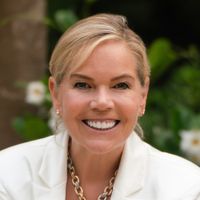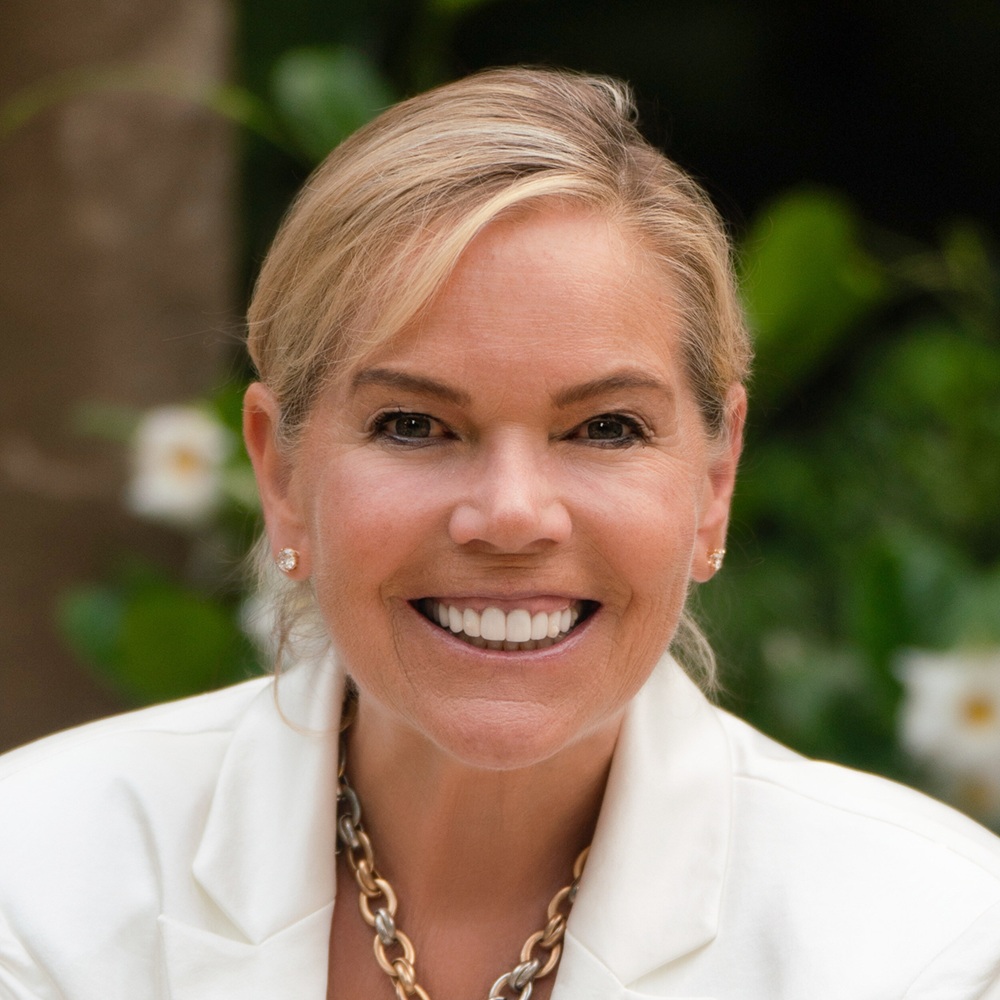The Three Biggest Fears Keeping Retirees Up at Night
Here are the steps you can take to put those fears to rest and retire with confidence so you can relax and enjoy the life you've planned.


Profit and prosper with the best of Kiplinger's advice on investing, taxes, retirement, personal finance and much more. Delivered daily. Enter your email in the box and click Sign Me Up.
You are now subscribed
Your newsletter sign-up was successful
Want to add more newsletters?
President Franklin Roosevelt famously said, “The only thing we have to fear is fear itself.” But let’s be real — he never retired.
Having passed away while still in office, he never had to worry about making his savings last for 30-plus years or what would happen if medical bills drained his bank account.
Retirement is supposed to be a time of “freedom” and “enjoyment,” and according to the 2024 Transamerica Retirement Survey, most retirees associate retirement with positive words. But 37% also cite negative ones — “health decline,” “insecurity” — and nearly a quarter say they feel anxious or depressed.
From just $107.88 $24.99 for Kiplinger Personal Finance
Become a smarter, better informed investor. Subscribe from just $107.88 $24.99, plus get up to 4 Special Issues

Sign up for Kiplinger’s Free Newsletters
Profit and prosper with the best of expert advice on investing, taxes, retirement, personal finance and more - straight to your e-mail.
Profit and prosper with the best of expert advice - straight to your e-mail.
Simply put: Retirement isn’t a carefree experience for everyone. Fears about money and health loom large, compounded by the uncertainty of what the future holds.
But your retirement doesn’t have to be shadowed by anxiety. Here are the biggest financial fears retirees face — and the steps you can take to retire with confidence and fearlessly enjoy the life you’ve planned.
1. Outliving your money (longevity risk)
Imagine having to choose between death and running out of money. Surprisingly, most Americans would choose mortality. A 2024 Allianz Life survey found that two-thirds of people fear running out of money more than death itself.
That makes this the number one retirement worry: Will my savings last my entire life? And it’s not just an irrational fear. With inflation, rising health care costs and unpredictable markets, retirees could be looking at decades of needing their money to last.
The U.S. Department of Labor says the average American spends about 20 years in retirement, yet only about half of Americans have even calculated how much they need to retire.
And that’s where the stress comes in.
“If you’re feeling some stress around these issues, that’s normal,” says Bob Carroll, CPA, CFP®, CDFA®, managing director and wealth advisor at Carnegie Investment Counsel. “Fortunately, our worst fears rarely manifest themselves.”
Carroll specializes in safeguarding clients from outliving their retirement funds. “The best way to bring stress down and raise your odds of success is through thoughtful planning,” he advises. “A properly constructed plan evolves and considers various time horizons.”
Traditional retirement strategies, like the 4% spending rule, suggest a fixed annual withdrawal rate from your retirement savings. However, this approach doesn't account for market fluctuations or personal circumstances. What works in a bull market might fall apart when stocks take a dive.
That’s why retirement income planning is both an art and a science. It blends quantitative analysis with personalized judgment. Your spending needs, investment returns and even your tax situation all play a role in shaping how you withdraw your savings.
Perhaps the best way to resolve this fear is to consult a fiduciary, fee-only adviser with expertise in retirement income planning — ideally before you retire.
A fresh perspective and a dynamic withdrawal strategy can make all the difference. Think of it as a road map with guardrails: a plan that adapts to market conditions, allowing you to spend more in strong years and tighten up when times get tough, ensuring your savings last longer.
2. The elephant in the room: Long-term care
Medical expenses are one of the biggest unknowns in retirement. A 65-year-old retiring today can expect to spend an average of $165,000 in health care and medical expenses throughout retirement, according to Fidelity Investments. But that doesn’t include long-term care.
Medicare helps but does not cover assisted living costs or long-term stays in rehabilitation facilities. It covers only up to 100 days in a skilled nursing facility per benefit period, and that’s only if you meet specific requirements. After that, you’re on your own.
That’s a big problem because the national median cost for a private room in a nursing home is now $10,646 per month, according to CareScout.
And here’s the reality check: About 70% of individuals aged 65 and older will require some form of long-term care in their lifetime. Yet, most people don’t plan for it.
“Making matters worse,” says Carroll, “it’s becoming increasingly difficult to cover the risk with conventional long-term care insurance policies due to the high cost and unpredictable nature of the care needed.”
The traditional policies many people have relied on are disappearing or becoming prohibitively expensive. “A multipronged approach is often needed,” he adds. “This requires looking at the full gamut of financial assets at your disposal.”
The best approach? Start planning now — especially if you’re in your 50s or early 60s. Waiting until your late 60s or 70s means you’ll pay even higher insurance premiums or, worse, won’t qualify at all due to health conditions.
What are your options?
Consider long-term care insurance — but be really smart about it. The devil is in the details when it comes to insurance policies, and premiums could be prohibitively high. Many people opt for hybrid policies, which combine life insurance with long-term coverage. If you never need care, your beneficiaries still get a payout.
If you have a high-deductible health plan, maxing out a health savings account (HSA) is a great move. It’s triple tax-free, meaning you can use it for medical expenses in retirement without paying taxes on the withdrawals.
If insurance isn’t an option, you’ll need to self-insure using a mix of investments, savings and tax-advantaged accounts like Roth IRAs or a portion of your 401(k).
3. Stock market drops when you’re ready to start withdrawals
Markets go up and down — it’s inevitable. But when you’re retired and relying on your investments for income, downturns can feel like a direct hit to your wallet.
Worries that trade conflicts will lead to higher prices haven't helped. According to Vanguard, retirees aged 70 and older typically hold about 42% of their portfolios in stocks. That’s enough exposure to fuel growth but also enough to feel the pain when markets take a dive.
As a result, people have shifted some of their retirement savings away from tech stocks to more defensive industries like consumer goods, health care and energy.
So, why not just put your retirement savings in a bank CD and avoid the risk? Relying solely on certificates of deposit (CDs) for retirement savings may not provide sufficient growth to counteract taxes and inflation.
For example, a $500,000 investment in a CD yielding 4% annually would generate $20,000 in interest. After accounting for a 22% tax rate and 3% inflation, the real growth of your investment is minimal.
Over 20 years, as costs rise due to inflation — which can double prices every 24 years at a 3% rate — your purchasing power diminishes, potentially draining your savings after 18 years, while you’re in your 80s.
“There is just as much risk in being too conservative as there is in being too aggressive,” Carroll warns. “Both approaches can lead to bad outcomes.”
You can’t control inflation or market cycles, but you can control how much of your income is lost to taxes. Using tax-advantaged accounts like Roth IRAs or investing in tax-efficient assets like municipal bonds can help you preserve more of your wealth for the long haul.
“A smarter strategy is to make sure your portfolio is integrated with your financial plan so that it can deliver the necessary resources to meet your needs when needed,” Carroll explains. “If this approach is done consistently, you can reduce the downside risk associated with market volatility that inevitably rears its head periodically — like now!”
Better strategies for sustainable retirement income
A well-balanced portfolio — dividend stocks, tax-efficient bonds and CDs — can provide retirees with both stability and long-term growth. But managing withdrawals is just as important as building savings.
Some retirees, even those with substantial assets, withdraw less than 3% annually — far below the commonly recommended 4% rule. While caution is wise, excessive frugality can mean missing out on the lifestyle you worked hard for.
“Believe it or not, accessing your savings requires as much planning (if not more) as the accumulation phase,” Carroll says. “Age, timing, cash flow needs, taxes and risk tolerance all play a role.”
If resources fall short, retirees can consider downsizing or leveraging home equity for additional income. And in some cases, part-time work can provide both financial security and personal fulfillment.
Last but not least: Create an estate plan and appoint a health care proxy
A good night’s sleep is one of the most valuable things in life, and nothing helps you rest easier than knowing your financial house is in order. Life is full of unexpected events — some good, some bad — but a well-structured financial plan can keep you grounded and confident in the future.
That’s why it’s essential to establish an estate plan, including a power of attorney and an advance health care directive so that trusted individuals can make financial and medical decisions on your behalf if needed.
“One or all of these fears might be haunting you,” Carroll reminds us. “But not everything needs to be done all at once.” The key is to take that first step and build from there.
Related Content
- Five Things I Wish I’d Known Before I Retired
- The End of Retirement as We Know It
- The Five Stages of Retirement (and How to Skip Three of Them)
- Six Financial Actions to Take the Year Before Retirement
- Retirees’ Anti-Bucket List: 10 Experiences You Don’t Want
Profit and prosper with the best of Kiplinger's advice on investing, taxes, retirement, personal finance and much more. Delivered daily. Enter your email in the box and click Sign Me Up.

With more than 25 years in investor advocacy, Pam Krueger is the founder and CEO of Wealthramp, an SEC-registered adviser matching platform that connects consumers with rigorously vetted and qualified fee-only financial advisers. She is also the creator and co-host of the award-winning MoneyTrack investor-education TV series, seen nationally on PBS, and Friends Talk Money podcast.
-
 Big Nvidia Numbers Take Down the Nasdaq: Stock Market Today
Big Nvidia Numbers Take Down the Nasdaq: Stock Market TodayMarkets are struggling to make sense of what the AI revolution means across sectors and industries, and up and down the market-cap scale.
-
 How Medicare Advantage Costs Taxpayers — and Retirees
How Medicare Advantage Costs Taxpayers — and RetireesWith private insurers set to receive $1.2 trillion in excess payments by 2036, retirees may soon face a reckoning over costs and coverage.
-
 3 Smart Ways to Spend Your Retirement Tax Refund
3 Smart Ways to Spend Your Retirement Tax RefundRetirement Taxes With the new "senior bonus" hitting bank accounts this tax season, your retirement refund may be higher than usual. Here's how to reinvest those funds for a financially efficient 2026.
-
 Big Nvidia Numbers Take Down the Nasdaq: Stock Market Today
Big Nvidia Numbers Take Down the Nasdaq: Stock Market TodayMarkets are struggling to make sense of what the AI revolution means across sectors and industries, and up and down the market-cap scale.
-
 3 Smart Ways to Spend Your Retirement Tax Refund
3 Smart Ways to Spend Your Retirement Tax RefundRetirement Taxes With the new "senior bonus" hitting bank accounts this tax season, your retirement refund may be higher than usual. Here's how to reinvest those funds for a financially efficient 2026.
-
 Trump's New Retirement Plan: What You Need to Know
Trump's New Retirement Plan: What You Need to KnowPresident Trump's State of the Union address touched upon several topics, including a new retirement plan for Americans. Here's how it might work.
-
 Buy and Hold … or Buy and Hope? It's Time for a Better Retirement Planning Strategy
Buy and Hold … or Buy and Hope? It's Time for a Better Retirement Planning StrategyOnce you're retired, your focus should shift from maximum growth to strategic preservation and purposeful planning to help safeguard your wealth.
-
 Your Legacy Is More Than Your Money: How to Plan for Values, Not Just Valuables
Your Legacy Is More Than Your Money: How to Plan for Values, Not Just ValuablesLegacy planning integrates your values and stories with legal and tax strategies to ensure your influence benefits loved ones and good causes after you're gone.
-
 Will Real Estate and Private Equity Start to Shine Again in 2026?
Will Real Estate and Private Equity Start to Shine Again in 2026?Real estate, private equity and general partner stakes could benefit from future interest rate cuts. What are the risks and rewards of investing in each?
-
 Nasdaq Soars Ahead of Nvidia Earnings: Stock Market Today
Nasdaq Soars Ahead of Nvidia Earnings: Stock Market TodayWednesday's risk-on session was sparked by strong gains in tech stocks and several crypto-related names.
-
 4 High-End Experiences Worth the Splurge After 50
4 High-End Experiences Worth the Splurge After 50These curated date ideas provide the perfect backdrop for couples ready to enjoy the very best that the world has to offer.